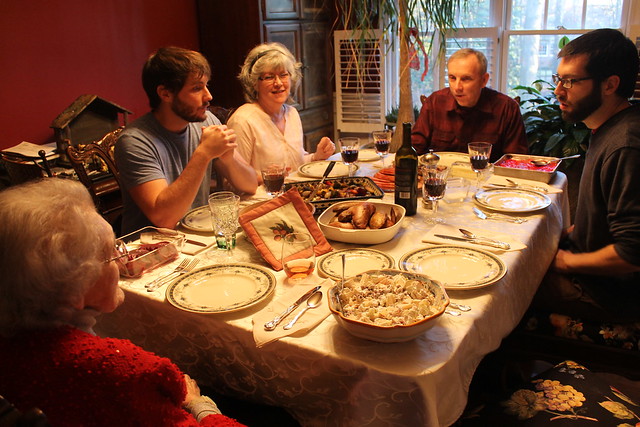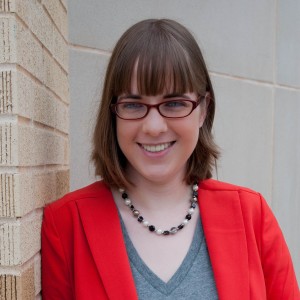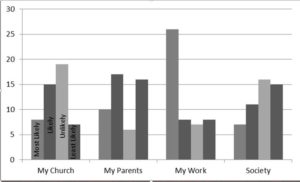“Hey, man, what are you doing for Thanksgiving?”
“I don’t know. Nothing much.”
These are the kinds of conversations I often hear – among emerging adults during the holiday season.
Emerging adulthood can be an especially isolating life stage, as we may be geographically distanced from family while pursuing educational or career opportunities.

© 2014 Connie Ma, Flickr | CC-BY-SA | via Wylio
Even if we have strong communities at school, work, and/or church, there may be lulls in activity – or at least routine activities – during the holidays. College students hunker down for finals. The weekly Bible study takes a break. And you know what? The Bible does not take a break from exhorting: “Let us not neglect meeting together, as some have made a habit” (Hebrews 10:25).
It’s really not that hard to include emerging adults in your church family and maybe even in your biological family during the holiday season.
Here are five ways to show warmth to emerging adults during this holiday season.
1. Send care packages to the college students who are members of your church. Easy, practical, and student-approved items you might consider including: granola bars, popcorn, chewing gum, tea bags, hot cocoa packets, ramen noodle packages, pens, highlighters, Post-It notes, handwritten encouraging notes.
2. Invite a young adult over to your home for a meal at Thanksgiving, Christmas Eve, Christmas, New Year’s, or really any time!
3. Offer a ride to or from the airport to help a young adult get home to their family. Paying for airport parking, taxis, or Uber can be rather pricey. And, students and young professionals can be rather poor. Financials aside, though, a car ride is a real, tangible kindness to offer to anyone.
4. Help a young adult spend time with children. For instance, invite young adults to baby sit, volunteer in the church nursery, or help with the Christmas Pageant. All parties involved benefit from this multigenerational interaction.
5. Help a young adult spend time with the elderly. For instance, invite young adults to help in some way with your church’s Senior Adults ministry, visit a nursing home, or visit homebound church members. Activities like Christmas caroling, baking, and board games get the young and old bonding in no time.
In sum, invite us to be part of a family! That’s what we all crave, especially at the holidays. And that’s something young adults may struggle to find … but I think easily could find with a little partnership from the other generations around us.
 Julia Powers is a twenty-something writer and seminarian finding my way in God’s story for the world, the Church, and the little square inch of the world that is my life. You can find more of her thoughts at her blog.
Julia Powers is a twenty-something writer and seminarian finding my way in God’s story for the world, the Church, and the little square inch of the world that is my life. You can find more of her thoughts at her blog.
 If I can help equip your parents and adolescents as children transition into adulthood, please contact me at gdavid@earesources.org.
If I can help equip your parents and adolescents as children transition into adulthood, please contact me at gdavid@earesources.org.













 Mark is a partner in The Youth Cartel, providing services and resources for individual youth workers and organizations. I’ve been married to Jeannie for 30 years, and have two great kids: Riley (22) and Max (18). Here’s The Youth Cartel’s website. twitter: @markosbeard instagram: @whyismarko
Mark is a partner in The Youth Cartel, providing services and resources for individual youth workers and organizations. I’ve been married to Jeannie for 30 years, and have two great kids: Riley (22) and Max (18). Here’s The Youth Cartel’s website. twitter: @markosbeard instagram: @whyismarko

